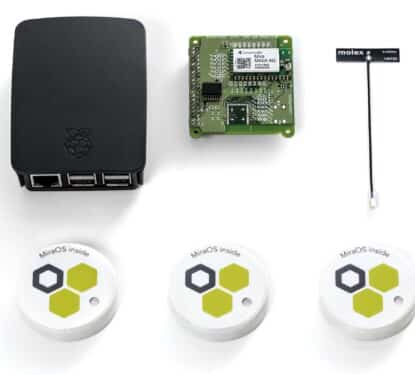A Smart Building is one that, "uses internet and transmission-based protocols to facilitate the analysis of aggregated data from multiple building systems, optimizing operational decision making as guided by the goals of the facility,” concluded a recent article titled “Defining A Smart Building" by Nora Swanson, director of design technology at engineering and design firm AKF.
This definition echoes many before it. In even more simple terms, the smart building is one that uses connected technology to better meet the goals of the building. Bricks, mortar, glass, and steel do not have goals, per se, so when we talk about "goals of the building" what we really mean is the goals of the people with a stake in that building.
Commercial real estate is designed on the specifications of the owner or developer, in part to enhance the operational performance of facility managers. Their performance should attract the best tenants, who in turn, will use the building's smartness to engage occupants for business success.
So, a smart building is one that can engage occupants to attract tenants through well managed facilities to improve return on investment (ROI) for owners.
Each of these stakeholder groups is crucial to the overall “goal” of the building but each group has its own individual demands and objectives. The truly smart building may be the one that serves the needs of each group in order to meet all the goals of the building.
Owners / Developers
Whether building from scratch, redeveloping, or buying the finished article, the building's owner spends money, even more money in the case of smart buildings. The main goal for building owners, therefore, is to increase the value of that building to improve the yield, be it by lease or sale. That means making it more attractive to prospective tenants (or buyers and tenants in turn).
From an owner's perspective, smart technology may be an additional cost but also offers the greatest potential value by commanding the highest rates. Owners are looking to find the balance of investment and improvement that makes their building more enticing than their neighbors'. As smart buildings become the norm, the risk of making smart tech investments will quickly become the risk of NOT making smart investments, to avoid being left behind as the competition advances.
“One of the biggest reasons why a building owner would want a smart building is due to the potential of increasing the building’s value and marketability,” says Nicholas Catrone, mechanical controls engineer at AKF. “A building owner would benefit from owning a smart building because, at least in the near term, they can create a competitive advantage in the ever-fast moving real estate market, while potentially charging more $/square foot.”
"In this industry, it seems like change takes a long time. I believe that the competitiveness of the real estate market and growth of technologies will drive building owners to be more conscious of how their building can be more attractive to prospective tenants, save energy, and be future-proofed," Catrone continued.
FM / Operators
Facility managers are looking for the biggest contracts, and today that means operating the world's smartest buildings. Their goal is to operate their buildings as smoothly and efficiently as possible, in order to keep their customers happy and attract new ones. Using smart technology, such as sensors and data analytics, brings about predictive maintenance, enhanced security, and other applications that minimize disruption and increase performance to meet operator goals.

Tenants
Tenants, who are generally businesses, are focused on increasing shareholder value. They look to the smart building as an employee productivity enhancer, both by getting the most out of current employees and by attracting the best talent available. Additional elements, such as cost-saving and portraying an environmentally responsible image, provide secondary benefits from the smart building.
Occupants
The vast majority of occupants in a building are the employees hired by tenants. Occupants are true users of smart building technology; the group that lighting and environmental control systems are configured for, the group that is tracked and monitored to dictate performance enhancing strategies. As the group that must first accept the technology before it can be considered successful, occupants have become the key to the development of the smart building — whatever its stated goals.
"Smart buildings span industries — they include office buildings, factories, shopping malls, hospitals, academic campuses, stadiums, airports, military bases, and residential buildings," outlines a Deloitte Insights analysis. "The common thread running through these use cases is human — these are all spaces in which humans can converge and interact with each other, utilize advanced technology to perform their necessary functions, and benefit from a digitally enhanced experience."
While the smart building is often defined by its digital excellence, it is, at its core, a human-centric concept. A facility that helps its occupants achieve their goals of productivity, health, comfort, and wellbeing. Designing with a focus on people, is the best and maybe the only way to create a successful smart building, which meets the goals of all stakeholders.
"The confluence of the Internet of Things (IoT) with building operations and the future of the workplace is creating a significant opportunity for building owners, operators, and occupants to create smart, digitally connected spaces that support the people at their center," the Deloitte article continued.
A smart building is one that best serves its people... and that has been true long before the emergence of smart technology.



